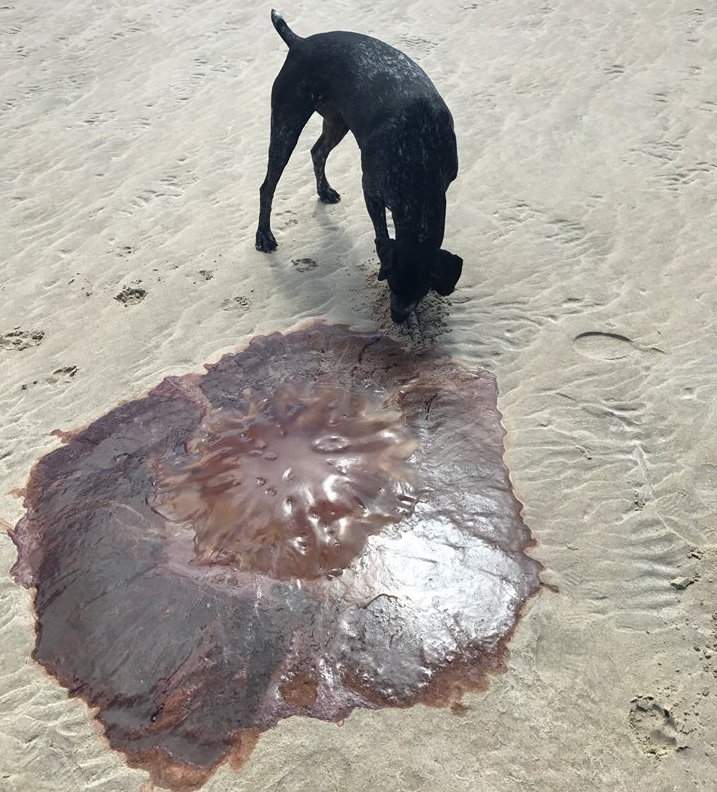There has been a rise in warnings over the stinging Lion’s Mane jellyfish this week as families flock to the beach to enjoy the sunshine.
The lion’s mane jellyfish has been spotted in Irish waters in recent weeks, with some swimmers being hospitalised near Galway.
The dangerous jellyfish has a powerful sting in its tentacles which can cause severe pain and anaphylactic shock.
Irish zoology expert Dr Tom Doyle has warned that the jellyfish are particularly large and mature this year.
Dr Doyle told the Irish Times: “The typical jellyfish lives in the water column for six to eight months, having been released as a juvenile in December, but we believe these jellyfish may have over-wintered and may be on their second season.”
The jellyfish were frequently spotted on Donegal beaches last summer, so beachgoers should be on the lookout for the giant creatures, especially those with pets.
The jellyfish can be identified by it’s colour, which varies from deep red to yellow individuals. They can reach a bell diameter of 2 meters, normally much smaller and can have up to 150 long tentacles each.
All jellyfish possess stinging cells, “stingers”, on their tentacles. However, the Lion’s Mane stinging cells are much sharper and can pierce skin easily resulting in a painful sting. A sting from a Lion’s Mane jellyfish can cause nausea, sweating, cramps, headaches and other symptoms.
If you have been stung, the HSE advice is to remove yourself from the water / vicinity of the jellyfish and seek help and advice from lifeguards if you are on a lifeguarded beach.
Try to carefully remove any attached tentacles by flushing the sting area with sea water and removing tentacles with gloved hands, clean stick, tweezers, or scraping gently with the edge of a credit card. Don’t try to rub them off. If serious symptoms occur, seek medical attention.
More informaton is available at : https://www.hse.ie/eng/health/hl/water/bathing/jellyfish-in-irish-coastal-waters.html
Tags:








